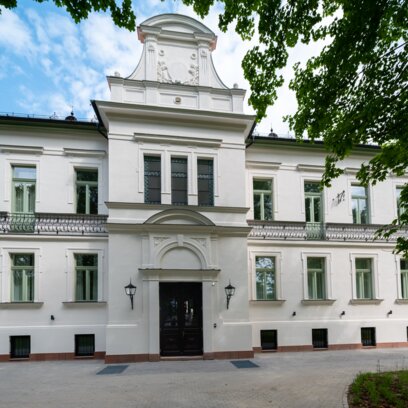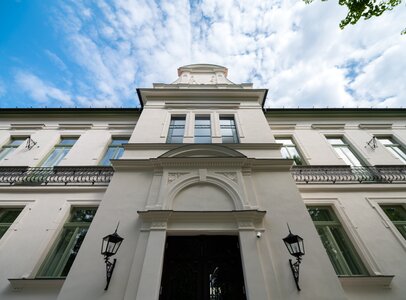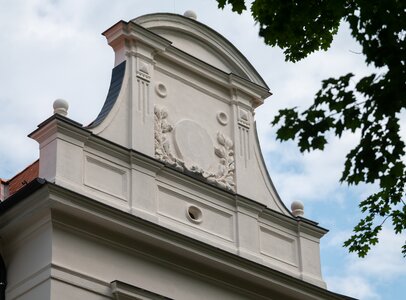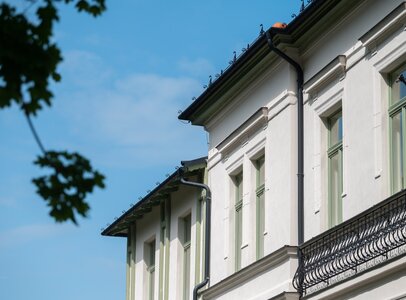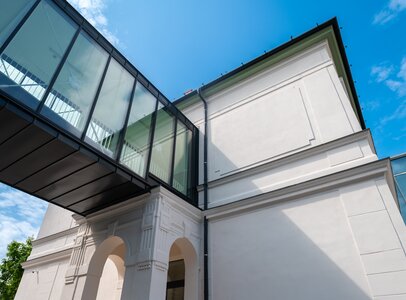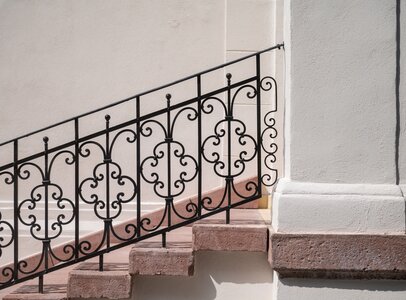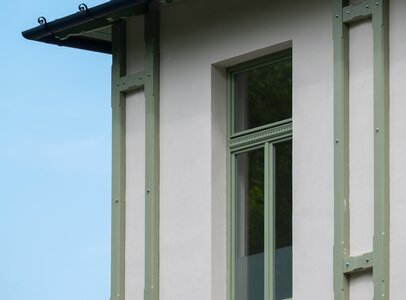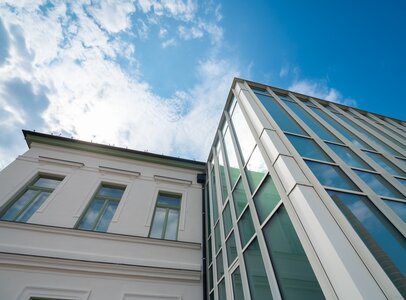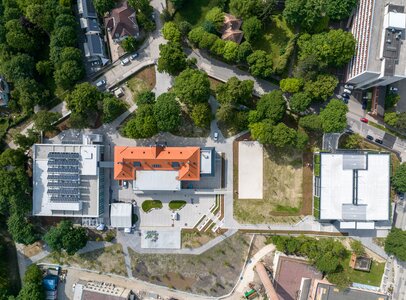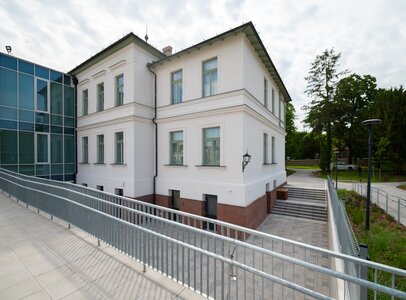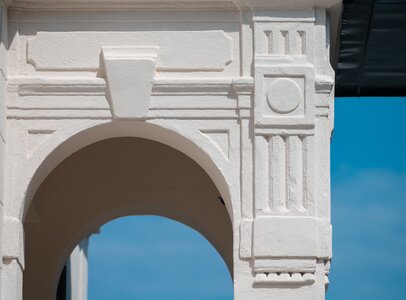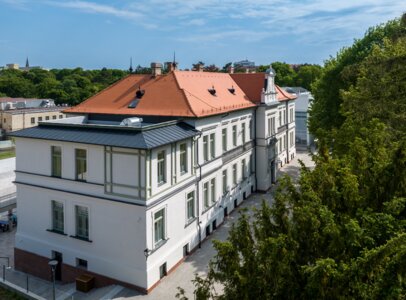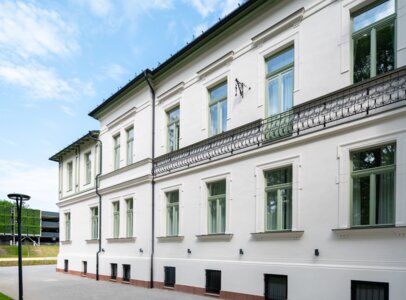REJUVENATION OF A MONUMENTAL JEWEL
ActiCity, nestled in the heart of Veszprém near the university, was once a neglected hospital building, left unused for nearly three decades since its closure in 1995. However, in May 2023, it was reborn as a vibrant hub for culture and sports.
The revamped structure boasts 12 rehearsal rooms, a competition wall climbing arena, a spacious event hall, a restaurant, and a café. The main building hosts ballet and various dance and movement classes, while an annex, formerly a laundry facility from the 1980s, serves folk dance groups and local wall climbers, connected by a glass corridor. Surrounding ActiCity, there's a park with ancient trees and a petanque court, while an outdoor event area in front accommodates up to 1500 people.
The building's façade had suffered from years of neglect, requiring extensive restoration. Much of the plaster and decorative ornaments had deteriorated and needed removal for the new façade. Additionally, trees had taken root between the render and the load-bearing layer on the north side of the façade.
Preserving the original façade, including its color, was of paramount importance due to its historical significance.
The restoration process involved: Repairing base plaster using Cemix Eurosan VS trowel and Premium hand repair plaster. Consolidating the remaining base coats with Tiefengrund deep primer before applying the final smoothing coat (Renti Fein). Restoring façade decorations using Cemix putty. Finishing the façade with Cemix Renti Fein plaster.
Creating the façade ornaments posed a significant challenge. Traditional plaster-cutting techniques were employed, necessitating the replication of original façade elements, custom tool crafting for cornice strokes, and the expertise of skilled masons familiar with traditional methods. The selection of appropriate materials was also crucial in this meticulous restoration effort.
